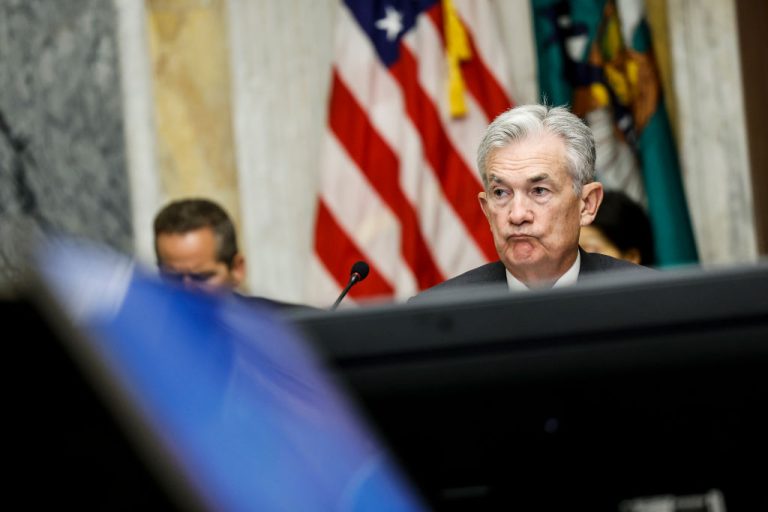As central banks across the world raised interest rates and doubled down on hawkish narratives that they were willing to do whatever it takes to bring down inflation caused by COVID-19 stimulus spending and quantitative easing at the end of September, the resulting turmoil appears to have spooked the United Nations.
The U.S. stock and bond markets saw one of the worst months on record as key indexes such as the Dow Jones slipped below 30,000, not only setting a new 2022 low, but trading below its pre-COVID highs for the first time.
Although the SPX500 and Nasdaq maintained their crucial pre-COVID hallmarks, they likewise set 2022 lows with a final day blowout.
MORE ON THE GLOBAL ECONOMY
- Consumers of ADHD Drug Adderall Worry as Supply Crumbles
- With Winter Looming, Germans are Panic Buying Electric Space Heaters
- Brits to be Paid ‘Bonuses’ in Subsidized Energy Rationing Scheme
- UK Supermarket Starts Issuing Microloans to Pay for Groceries
The week’s turmoil was far from limited to American markets.
In late September, after the newly formed Liz Truss UK Government announced a range of economic stimulus plans involving tax cuts, the British pound stunned the forex world as it flash-crashed more than 9 cents against the USD.
Success
You are now signed up for our newsletter
Success
Check your email to complete sign up
Not only did the pound crater, but so did Bank of England bonds, which saw its 30-year Gilt lose nearly 25 percent of its value over the course of only four days as yields skyrocketed over 5 percent, making September of 2022 one of the most historic months on record the product has ever printed.
The resulting crisis put the country’s pension funds, which are heavily leveraged in government bonds, on the verge of liquidation, forcing the UK’s central bank to lose face pivoting from its hawkish path and intervene in the market, directly repurchasing bonds to bring down the yield.
The result was the 30-year Gilt regaining 25 percent of its value overnight.
These unprecedented moves in the one asset class that is supposed to be the most significant hedge against volatility and uncertainty were also accompanied by turmoil in the Japanese yen, which hit a high of 146.901 against the U.S. dollar.
In response, the Japanese Ministry of Finance likewise intervened in the market, exchanging $20 billion worth of the country’s U.S. dollar foreign reserves to repurchase its own currency.
And although the move saw the Yen regain a massive 5.6 cents almost immediately, it lost it all back in only two days.
On Oct. 3, the U.N. Conference on Trade and Development (UNCTAD) released its 70-page Trade and Development Report 2022, which was notably published on Sept. 30 — one of the worst days for markets in the year — but embargoed until the following Monday.
In a press release for the report, the UN body said that “advanced economies need to change course in their monetary and fiscal policies to avoid inflicting worse damage than the financial crisis in 2008 and the COVID-19 shock in 2020.”
UNCTAD added, “The cascading crises resulting from the pandemic combined with debt distress, inflation, climate change and the war in Ukraine have already turned a global slowdown into a downturn.”
The report itself begins with a subsection coined Too Close to the Edge. It reads: “The attention of policymakers has become much too focused on dampening inflationary pressures through restrictive monetary policies, with the hope that central banks can pilot the economy to a soft landing, avoiding a full-blown recession.”
The U.N. cautions governments on the instability their fiscal approach is causing:
“Not only is there a real danger that the policy remedy could prove worse than the economic disease, in terms of declining wages, employment and government revenues…”
Moreover, the supra-national organization warns, the “road taken would reverse the pandemic pledges to build a more sustainable, resilient and inclusive world.”
It is specifically concerned about the impact an incredibly strong U.S. petrodollar is having on the developing world and emerging markets.
“With 46 developing countries already severely exposed to financial pressure from the high cost of food, fuel and borrowing, and more than double that number exposed to at least one of those threats, the possibility of a widespread developing country debt crisis is a very real one, evoking painful memories of the 1980s…”
UNCTAD lamented that the resulting economic instability is “ending any hope of meeting the sustainable development goals (SDGs) by the end of the decade.”
Sustainable Development Goals are the nation-state equivalent of the corporate world’s Environmental Social Governance (ESG) framework; such efforts are billed as necessary steps to combat climate change, but have fueled heated controversy in their conception and implementation.
The SDGs have been at the heart of the recent unrest in the Netherlands, where Dutch farmers fight for their livelihoods against a government set on preventing them from utilizing nitrogen fertilizer and may be planning to eventually appropriate their land for the requirements of the U.N.’s divisive Agenda 2030.
Notably, UNCTAD attributes inflationary pressures to neither the result of quantitative easing nor rising wages — the two main pretexts the Federal Reserve has relied on in its public-facing campaign to continue to hike interest rates — but instead on “cost increases, particularly for energy, and sluggish supply response due to a prolonged history of weak investment growth.”
The report explains: “These have been amplified by price-setting firms in highly concentrated markets raising their mark-ups to profit from two rare opportunities – in 2021, the surge in demand due to the global recovery, and in 2022, the surge in speculative trades related to a wave of global concern over the availability of particular sources of energy, with no substantial changes in overall demand or supply.”
UNCTAD Secretary-General Rebeca Grynspan doubled down on the message of the report in public comments, “There’s still time to step back from the edge of recession,” according to The Wall Street Journal.
“We have the tools to calm inflation and support all vulnerable groups. But the current course of action is hurting the most vulnerable, especially in developing countries and risks tipping the world into a global recession,” Grynspan added.















